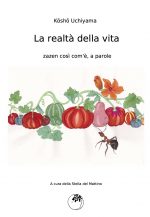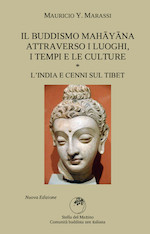Introduction
The following essay on Uchiyama Kosho Roshi’s life of mendicancy was written in the early 70’s. For roshi, a life of material poverty was taken for granted as a necessity for seeing into and understanding what an authentic religious life should be. A life grounded on zazen and a lifestyle grounded on material minimalism was essential for leading a truly rich spiritual life. The basis for a life of material minimalism is not some sort of asceticism or self-deprivation. There are many examples of ascetics living in Japan. On the contrary, roshi often said that it is the very over abundance of materialism and consumption that so confuses human beings and becomes the cause for so much suffering. He often spole to us of never being afraid or ashamed of material poverty. Dogen Zenji himself urged his followers to always live the minimal material life, but pursue the highest culture (a life of zazen). Placing this essay within the social context in which it was written, the year was 1968. Roshi was 56 years old. Socially speaking, Japanese heavy industry was beginning its phenomenal economic climb, not in the least thanks to the tanks and other heavy equipment supplied to the Unites States military in its war in Vietnam (1) Roshi confided to me one day that one reason he wrote Laughter through the Tears (2) was, in a sense, to thank all the people in Kyoto who supported him during those difficult years of his life of practice. Before reading further, perhaps a brief explanation of the practice of takuhatsu is in order. Takuhatsu is the practice of walking through the streets of the city collecting donations which, in modern day Japan, are mostly monetary. The tradition itself has been handed down through the ages from Shakyamuni Buddha in India, through China and Korea, though in those countries, the donation is usually food. Literally, the Chinese characters mean to “trust in the bowl.” That is, trust that whatever is needed to sustain one’s daily life will be provided to the monk or nun. So the attitude of a person on takuhatsu is entirely different from a beggar who simply puts his or her hand out wanting to be fed.
The attitude of one on takuhatsu must be one of equanimity, whether no donation is received or a large one is received. In fact, the attitude of the mendicant on takuhatsu is one of giving an opportunity to people to materially support a life of one dedicated to zazen and the teaching of the Buddhadharma. Finally, I will feel that this translation has been successful if it is able to convey to readers even a little of the humor and pathos, sometimes subtle, sometimes not so subtle, imbedded in roshi’s discussion of takuhatsu. The stories are humorous enough as they are, but then after the humor is appreciated, the reader may have to return once more to think about the purpose in roshi’s conveying his message as he did. Perhaps the final chapter on why do takuhatsu is the most critical in understanding takuhatsu not simply as a way to get food, but as an attitude towards life.
Notes:
1)During the war Uchiyama roshi was sent to a very remote area in Shimane Prefecture by his teacher, Sawaki roshi . He spent the time making charcoal. Later, Sawaki roshi sent him to a place in Shizuoka where he made salt from seawater. Both of these tasks were meant to protect him from having to go into the military. Sawaki roshi was fully aware that his disciple, Kosho, was not physically strong and certainly not suited for military life. Facts like this about how Sawaki roshi protected his disciples from the ravages of war are little known and have never been publicized. Actually, Roshi was drafted into the military exactly one week before Japan surrendered in 1944.
2) In Japanese, Nakiwarai no Takuhatsu.
Daitsu Tom Wright, July, 2005
One Response to “Takuhatsu: laughter through the tears. A life of mendicant begging in Japan”
Se volete, lasciate un commento.
You must be logged in to post a comment.








Luglio 22nd, 2011 at 9:14 am
[…] way-point point in my pilgrimage. Several years later however I came across an excerpt from The Takuhatsu of Laughter Through the Tears, a memoir by the late Zen teacher Kosho Uchiyama, and it brought my Hannya-ji visit back to me in […]